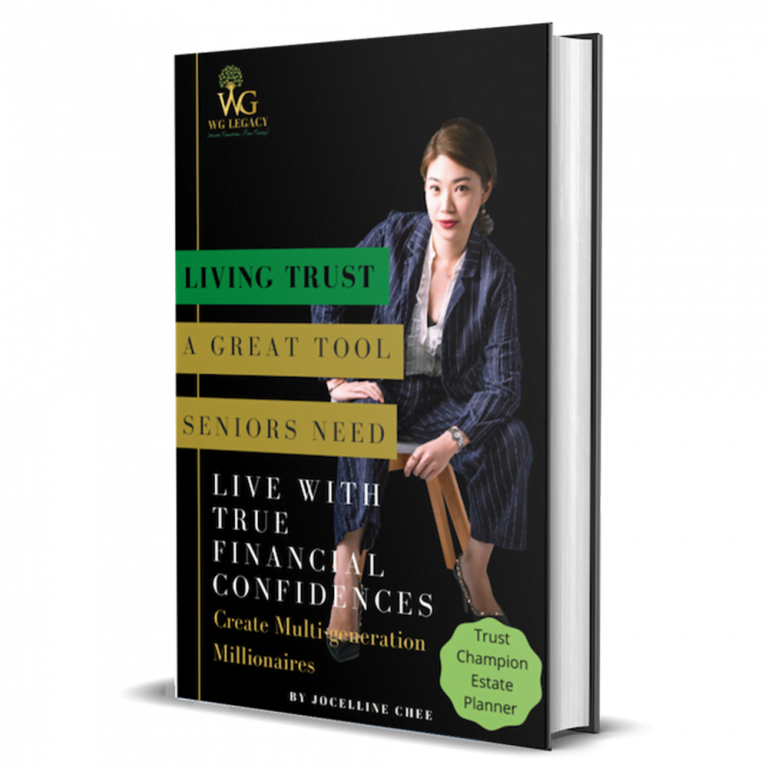Question:
Hi, I’m Ms. Lim, a 55-year old HR Manager based in Penang. Presently, I live in a terrace house with my 80-year old mother. Together, we care for Katie and Jean, my nieces who are primary school students. They live with James, their father in a terrace house just walking distance away from my house. Penny, their mother and my sister, had passed away a few years ago due to cancer.
Thus, how should I plan my estates so that I can continue to care for my mother, Katie and Jean?
Answer:
Here, let’s say, Ms. Lim intends to fund her mother’s living expenses and secure a place for her to reside in for the remainder of her life. Then, upon the passing of her mother, she wishes to leave behind all of her remaining estates evenly to her two nieces, Katie and Jean. If these are her intentions, here are some of the things that Ms. Lim should consider:
#1: Life Insurance
First, Ms. Lim should evaluate if her mother could manage her finances. Here, if her mother is not digitally or financially smart, it might not be practical to name her mother as the beneficiary of her life insurance policies.
Instead, Ms. Lim can consider forming an insurance trust and then assign all her life insurance policies to the insurance trust. She could instruct her trustee with her trust deed on how the sum assured is to be managed and distributed, upon her passing on in the future.
As such, if Ms. Lim passed on shortly after, the insurance trust would collect the insurance proceeds. Then, her trustee can use the money to continuously make payments to fund her mother’s living expenses. Subsequently, after her mother passed on, the remaining balance in the insurance trust can then be distributed to her two nieces, either in one-lump sum or in stages. The distribution method and frequency can be preset to Ms. Lim’s wishes via her trust deed.
#2: Liquid Assets
Here, I would touch on cash and FDs.
So, if Ms. Lim has excess cash, she could consider placing a portion of them into a cash trust. In the event when Ms. Lim passes on, the cash placed in her cash trust would not be frozen. The trustee of her cash trust could use the cash as an emergency fund to fund any legal fees that arise from the administration of her estates and to fund her mother’s living expenses.
But here, Ms. Lim has set up an insurance trust to manage her sum assured. So, which of the two trusts should she use first to pay for her mother’s living costs?
Well, there is really no right or wrong answer to this.
It is a matter of preference.
But, do take note that the cash within her cash trust could be distributed to her mother within 7 days. Whereas, for her insurance trust, the sum assured will be distributed to her mother within 2 months.
If Ms. Lim wishes to utilise her cash trust first, she could instruct the trustee of her insurance trust to either withhold or invest her sum assured, for a period of time until the funds in her cash trust have been fully exhausted. Only then, the trustee of her insurance trust shall use the money to pay for her mother’s living expenses and distribute the balance equally to her two nieces upon the passing of her mother.
#3: EPF
In the same light, it may not be practical for Ms. Lim to nominate her mother as the beneficiary to her EPF money if her mother is not financially smart. Instead, Ms. Lim could form a testamentary trust in her will to manage her EPF money.
Thus, if Ms. Lim intends to use up the funds in her cash trust first and then, her insurance trust next, Ms. Lim could appoint a trustee in her will and instruct the trustee to withhold or invest the EPF money, until all monies in both trusts have been fully exhausted. When that happens, the EPF money shall then be used to pay for her mother’s living expenses. Upon her mother’s passing, the balance in the testamentary trust shall be distributed evenly to her two nieces.
#4: Ms. Lim’s Terrace House
Let’s say, Ms. Lim wishes to secure her mother a permanent place to live in. She also intends to dispose of her house after her mother’s passing and have all the net sales proceeds distributed equally to her two nieces. In this case, she would be able to state and fulfil her wishes with a testamentary trust in her will.
If Ms. Lim passes on, the house shall first be transferred to the trustee as stated in her will. Her mother can reside in this house for the rest of her life as its legal occupant. Then, upon her mother’s passing, the trustee shall sell off the house, collect the proceeds, and distribute them evenly to her two nieces.
Why These Methods are Practical?
So, once again, Ms. Lim could consider:

Why are they practical for Ms. Lim?
This is because:
1. Her mother could be 80+ or 90+ in the event when Ms. Lim passes on. At her age, it is possible that she might be physically or mentally incapable of handling her financial affairs. Also, even if she is healthy, she may not be financially savvy to handle them, which would put her at the risk of being financially abused. So, with trusts, these trustees can safeguard her mother’s financial interests.
2. If Ms. Lim passes on and she bequeaths her cash, FDs, life insurance, EPF and her property to her mother, the question is, ‘What happens to all these estates, if her mother failed to write a will and passed on shortly after receiving them?’. Thus, if Ms. Lim uses trust structures to manage them, she would have resolved this issue effectively.
3. With trusts, Ms. Lim could ensure that her estates shall be managed in line with her intentions. She could eliminate the risk of losses, due to mismanagement of her estates by her beneficiaries, as they are managed by professional trustees.
Conclusion:
The above is an example of how singles could use the power of 3 trusts to make a highly comprehensive estate plan to deal with liquid and non-liquid assets. As such, if you want to brainstorm ideas on how to protect wealth better via will writing and trust formation, you can start by filling up the details below to book a short 30-minute consultation session:




